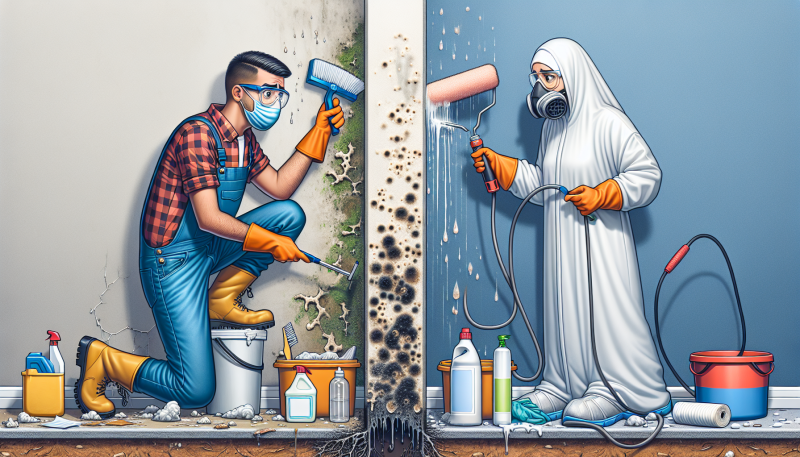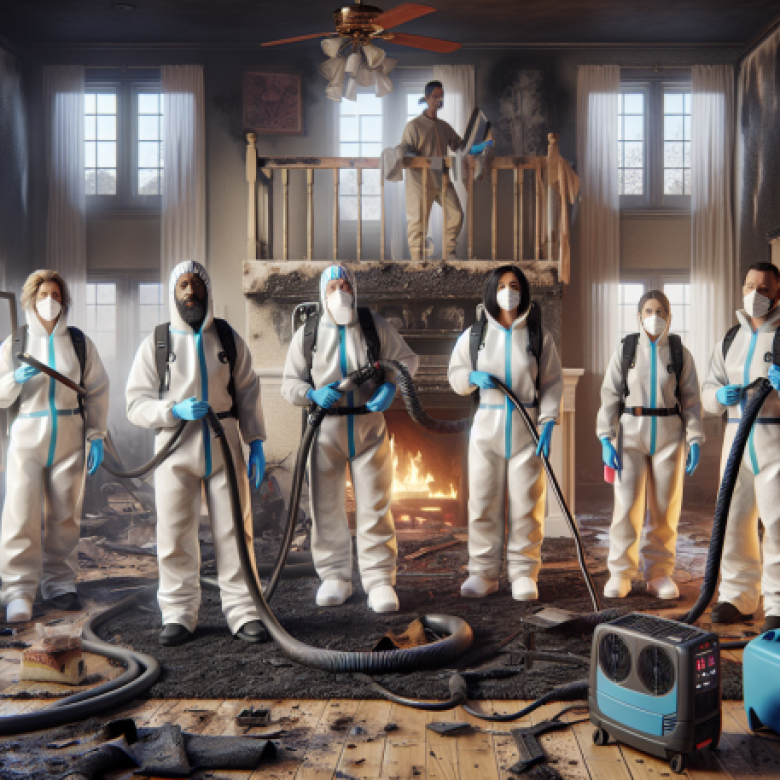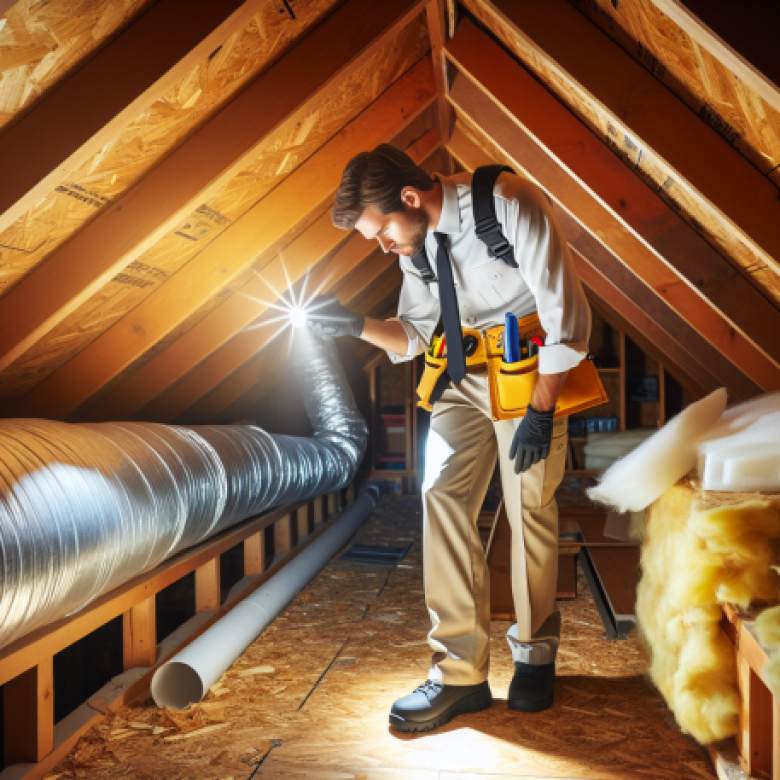Mold is a sneaky intruder that can wreak havoc on both residential and commercial properties. Whether it’s due to water damage or just the right conditions for mold growth, dealing with mold is a task that requires careful consideration. Should you tackle it yourself or call in the professionals? This article will explore the pros and cons of DIY mold remediation versus hiring experts like Projekt Property Restoration. We’ll dive into the details, so you can make an informed decision.
Understanding Mold and Its Risks
What is Mold?
Mold is a type of fungus that thrives in damp, humid environments. It can grow on various surfaces, including walls, ceilings, and floors. While some molds are harmless, others can pose serious health risks. Mold spores can cause allergic reactions, respiratory issues, and even more severe health problems in vulnerable individuals.
The Dangers of Mold
Mold isn’t just an eyesore; it’s a health hazard. Prolonged exposure to mold can lead to chronic respiratory conditions, skin irritations, and other health issues. For businesses, mold can also mean lost productivity and potential liability issues. This is why mold assessment and remediation are crucial for both residential and commercial property restoration.
DIY Mold Remediation
Pros of DIY Mold Remediation
Taking on mold remediation yourself can be tempting, especially if you’re looking to save money. Here are some advantages:
- Cost Savings: DIY mold remediation can be cheaper than hiring professionals. You can find mold removal kits at your local hardware store, and there are plenty of online tutorials to guide you through the process.
- Immediate Action: You can start the remediation process immediately without waiting for a professional to become available.
- Control: You have complete control over the process, ensuring that it’s done to your satisfaction.
Cons of DIY Mold Remediation
However, DIY mold remediation comes with its own set of challenges:
- Limited Effectiveness: Without proper training and equipment, you might not be able to remove all the mold. This can lead to recurring issues.
- Health Risks: Handling mold without the right protective gear can expose you to harmful spores.
- Time-Consuming: Mold remediation is a time-consuming process that requires thoroughness and attention to detail.
Professional Mold Remediation
Why Hire Professionals?
When it comes to mold remediation, hiring professionals like Projekt Property Restoration can offer several benefits:
- Expertise and Experience: Professionals have the training and experience to handle mold effectively. They can identify the type of mold and the best way to remove it.
- Advanced Equipment: Professionals use specialized equipment, such as HEPA filters and industrial-grade dehumidifiers, to ensure thorough mold removal.
- Comprehensive Service: Professional services often include mold assessment, remediation, and preventive measures to ensure the mold doesn’t return.
The Process of Professional Mold Remediation
Here’s what you can expect when you hire a professional mold remediation service:
- Inspection and Assessment: Professionals will conduct a thorough inspection to identify the extent of the mold problem. They may use tools like infrared thermal imaging to detect hidden mold.
- Containment: The affected area will be contained to prevent the spread of mold spores.
- Removal: Mold will be removed using specialized techniques and equipment.
- Cleaning and Disinfection: The area will be cleaned and disinfected to remove any remaining mold spores.
- Restoration: If necessary, professionals will restore any damaged areas, ensuring your property is back to its original condition.
Cost Comparison: DIY vs. Professional
DIY Costs
The cost of DIY mold remediation can vary depending on the size of the affected area and the materials needed. Here’s a rough breakdown:
- Mold Removal Kit: $20 – $50
- Protective Gear: $30 – $100
- Cleaning Supplies: $20 – $50
Professional Costs
Hiring professionals can be more expensive, but it often includes a comprehensive service. Here’s what you might expect:
- Inspection and Assessment: $200 – $600
- Remediation: $500 – $6,000 (depending on the extent of the mold problem)
- Restoration: Costs can vary widely based on the damage.
Making the Decision: DIY or Professional?
Factors to Consider
When deciding between DIY and professional mold remediation, consider the following factors:
- Extent of the Mold Problem: If the mold is widespread or hidden, professional help is likely the best option.
- Health Risks: If you or your family members have health issues, it’s safer to hire professionals.
- Cost: While DIY might seem cheaper, consider the potential costs of recurring mold problems and health issues.
Conclusion
Mold remediation is a critical task that requires careful consideration. While DIY mold remediation can save money, it comes with risks and limitations. On the other hand, hiring professionals like Projekt Property Restoration ensures thorough and effective mold removal, protecting your health and property. Whether you’re dealing with residential or commercial property restoration, it’s essential to weigh the pros and cons and make an informed decision.
Projekt Restoration is your go-to water, fire, & mold restoration experts. We also offer mold assessment, biohazard cleanup, and reconstruction services. For more information, visit our contact page.
FAQs
What are the signs of mold in my home?
Common signs of mold include a musty odor, visible mold growth, and water damage. If you notice any of these signs, it’s essential to conduct a mold assessment.
Can I remove mold myself?
While it’s possible to remove small amounts of mold yourself, larger infestations should be handled by professionals to ensure thorough removal and prevent health risks.
How much does professional mold remediation cost?
The cost of professional mold remediation can vary depending on the extent of the mold problem. On average, it can range from $500 to $6,000.
Is mold remediation covered by insurance?
Many insurance policies cover mold remediation if the mold is caused by a covered peril, such as water damage. It’s best to check with your insurance provider for specific coverage details.
How can I prevent mold growth in my home?
To prevent mold growth, keep your home dry and well-ventilated. Fix any leaks promptly, use dehumidifiers, and ensure proper ventilation in areas prone to moisture, such as bathrooms and kitchens.





